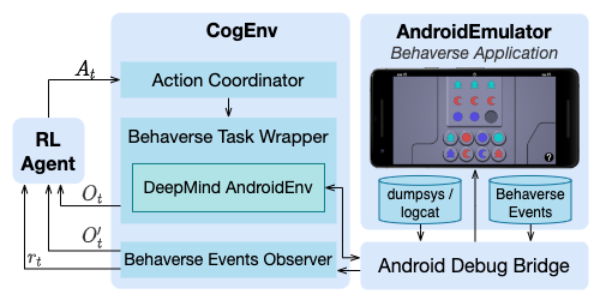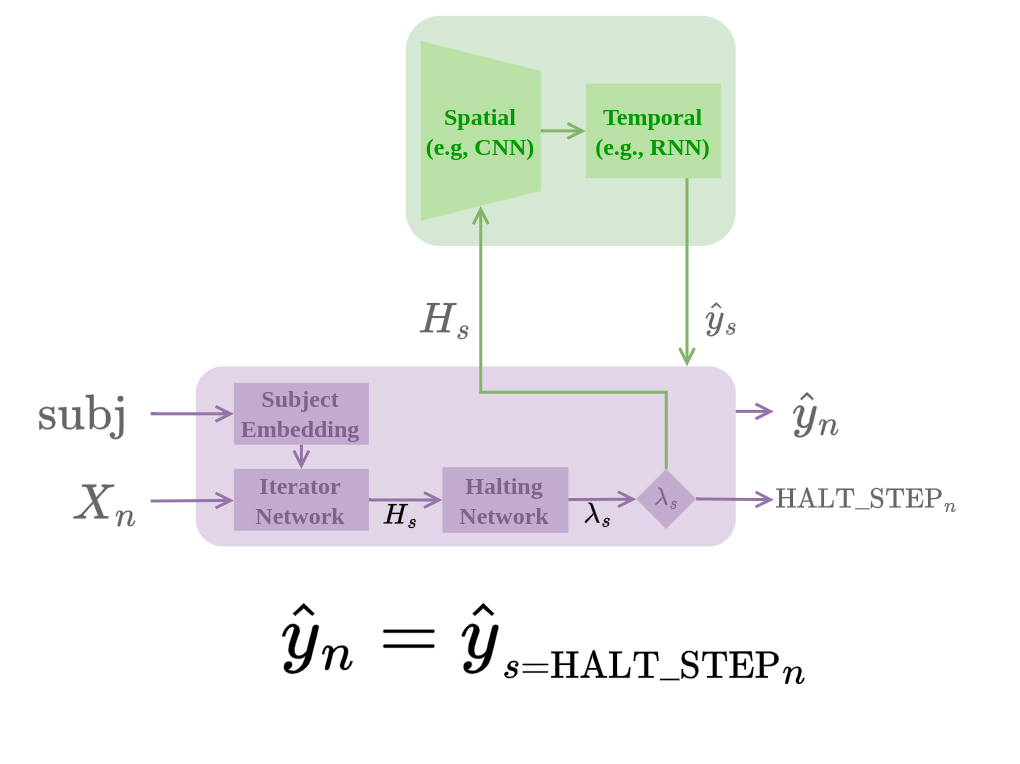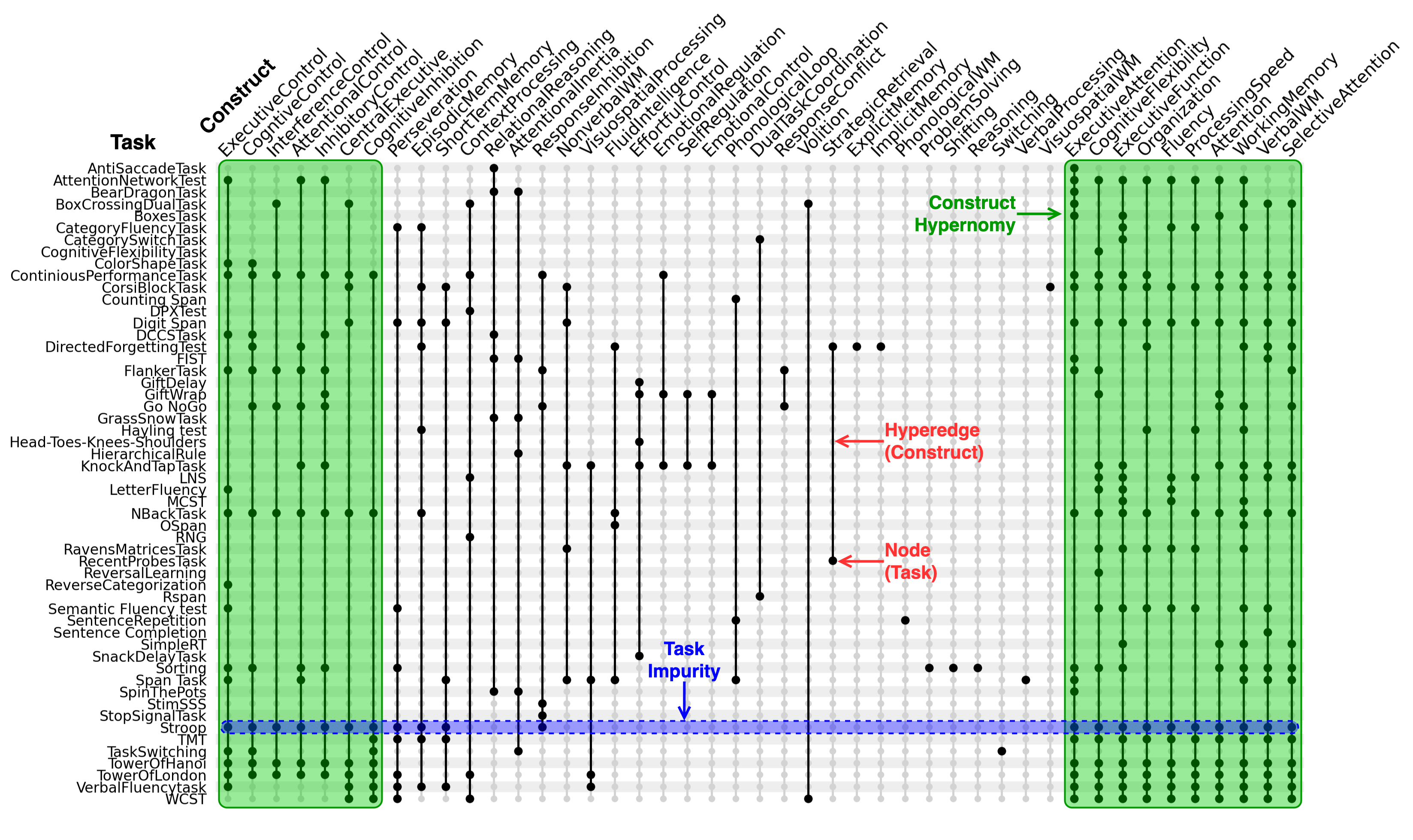Projects in Models focus on the analysis of empirical data to gain insights about the human mind and behavior. Models may comprise a wide array of projects including generic data analytical tools (e.g., IRT models), domain specific computational models (e.g., computational models of performance on the N-Back task), descriptive vs performing models (e.g., RL-agents performing tasks) as well as tools and environments to support the use of such models.
Vision
To make computational modeling accessible to a larger audience; to make it easier to improve on existing models and test the quality and generalizability of computational models across a wide range of benchmark datasets; to make cognitive sciences a cumulative science.
Projects
CogEnv
Reinforcement learning environment for cognitive tests
CogEnv is a virtual environment based on AndroidEnv that allows artificial agents to complete the same tests used in human studies. It enables typical reinforcement learning agents to perform tasks commonly used in cognitive psychology, such as the N-Back and Stroop tests. CogEnv is designed to be a flexible and extensible platform for studying a wide range of cognitive tests and comparing the performance of artificial agents to human participants.
CogPonder
Deep learning architecture for general cognitive control
CogPonder is a flexible, differentiable model of cognitive control inspired by the Test-Operate-Test-Exit (TOTE) architecture in psychology and the PonderNet framework in deep learning. It decouples the act of control from the controlled processes by introducing a controller that wraps around any end-to-end deep learning model. This controller decides when to terminate processing and output a response, thus producing both a response and response time.
CogText
Linking theories and methods in cognitive sciences
We used large language models to parse a large corpus of scientific documents about cognitive control and investigate the meaning and relationships between cognitive constructs on the one hand, and assessment instruments (i.e., cognitive tests) on the other. CogText performs automated text analyses on 385,705 scientific texts and creates a joint representation of cognitive control tests and constructs.


